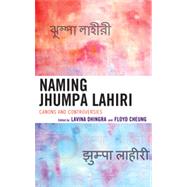
What is included with this book?
| Introduction Naming Jhumpa Lahiri: Bengali, Asian American, Postcolonial, Universal? | p. vii |
| The Ethnic, The Orientalist, And/Or The Universal? | |
| Mediating the Particular and the General:Ethnicity and Intertextuality in Jhumpa | p. 1 |
| The Inheritance of Postcolonial Loss, Asian American Melancholia, and Strategies of Compensation in Jhumpa Lahiri's The Namesake | p. 27 |
| What Lies Beneath: Lahiri's Brand of Desirable Difference in Unaccustomed Earth | p. 51 |
| Consuming Diaspora: Audience And Imaginary/Intimate Communities | |
| Novel/Cinema/Photo: Intertextual Readings of The Namesake | p. 75 |
| Affect, History, and the Ironies of Community and Solidarity in Jhumpa Lahiri's Interpreter of Maladies | p. 97 |
| Intimate Awakening: Jhumpa Lahiri, Diasporic Loss, and the Responsibility of the Interpreter | p. 117 |
| Gendered Ruptures And Familial Belongings | |
| Feminizing Men?: Moving Beyond Asian American Literary Gender Wars in Jhumpa Lahiri's Fiction | p. 135 |
| Gendered (Be)Longing: First- and Second-Generation Migrants in the Works of Jhumpa Lahiri | p. 157 |
| Re-Rooting Families: The Alter/Natal as the Central Dynamic of Jhumpa Lahiri's Unaccustomed Earth | p. 181 |
| Index | p. 211 |
| About the Contributors | p. 219 |
| Table of Contents provided by Ingram. All Rights Reserved. |
The New copy of this book will include any supplemental materials advertised. Please check the title of the book to determine if it should include any access cards, study guides, lab manuals, CDs, etc.
The Used, Rental and eBook copies of this book are not guaranteed to include any supplemental materials. Typically, only the book itself is included. This is true even if the title states it includes any access cards, study guides, lab manuals, CDs, etc.